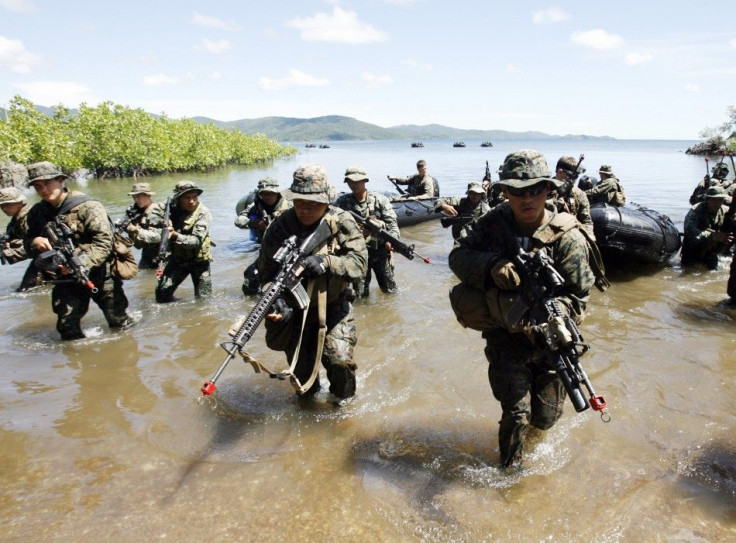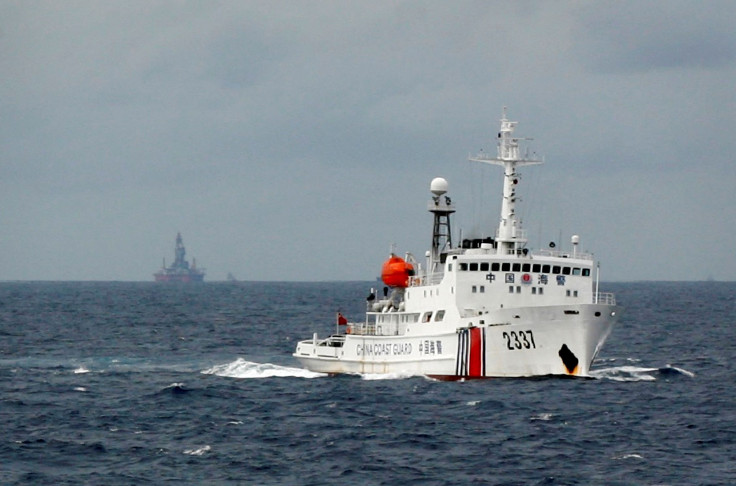China Sends Philippines, Marcos Jr. Stern Warning: US Ties Will 'Seriously Harm' Country

KEY POINTS
- China accused the U.S. of having a "Cold War mentality"
- China warned that the Philippines could be dragged by the U.S. into Taiwan tensions
- U.S. Ambassador to the Philippines MaryKay Carlson said EDCA would not be a "magnet" for Chinese aggression
China has issued a stern warning to the Philippines as the latter pursues closer military ties with the U.S. by expanding its access to military bases in the Southeast Asian country.
In a statement, the spokesperson for the Chinese Embassy in the Philippines said the U.S. military presence would "seriously harm" Manila's interests and endanger peace and stability in the region.
"Peace and development remain the theme of this era and the call of peoples around the world. However, the U.S., to secure its hegemony and selfish geopolitical interests and out of the Cold War mentality, keeps upgrading military cooperation with the Philippines by adding EDCA (Enhanced Defense Cooperation Agreement) bases and military deployment in this country," the Chinese Embassy spokesperson said.
"To bundle the Philippines into the chariots of geopolitical strife will seriously harm Philippine national interests and endanger regional peace and stability," the spokesperson added.
China questioned Philippine President Ferdinand Marcos Jr.'s decision to provide the U.S. access to additional key military facilities in the Philippines through EDCA, despite opposition from Filipino officials and other concerned groups.
The Chinese Embassy argued that the U.S. could have gained access to several Philippine military bases that are closer to Taiwan, warning that the Southeast Asian country could be dragged by its ally into cross-strait tensions.
China's remarks about the Philippines and the U.S.' military ties came after U.S. Ambassador to the Philippines MaryKay Carlson defended EDCA in a TV interview.
Carlson told Philippine news outlet GMA News that the U.S. gaining access to key Philippine military installations would not be a "magnet" for Chinese aggression, arguing that the EDCA sites are not permanent.
Carlson said that the EDCA sites would also protect the Philippine economy while enhancing the U.S. security interests in the Indo-Pacific region.
The U.S. ambassador added that as part of the defense agreement with the Philippines, it would fund the $24 million rehabilitation of Basa Air Base in Pampanga province, one of the existing EDCA sites.
During the visit of U.S. Defense Secretary Lloyd Austin III to the Philippines last month, the Philippine government announced that it would open up four more military bases to the U.S. forces.
Austin said the expansion of the key military deal would further "modernize" the alliance between the U.S. and the Philippines amid the increasing Chinese aggression in the heavily-contested South China Sea and China's continuing pressure campaign against Taiwan.
Austin also reiterated the U.S.' commitment to defending its Southeast Asian ally from armed Chinese attacks against Philippine vessels through the Mutual Defense Treaty.
The bilateral ties between China and the Philippines were tested after a Chinese coast guard vessel allegedly pointed a military-grade laser at a Philippine naval vessel, causing temporary blindness to some of its Filipino crew.
The incident was vehemently condemned by the Philippines, forcing Marcos to summon the Chinese ambassador to explain.
Despite the incident, China appeared to have continued its aggression in the West Philippine Sea, a part of the South China Sea that Manila claims as part of its sovereign territory.
On Thursday, a Chinese coast guard ship gave an aircraft of the Philippine Coast Guard (PCG) a radio warning while doing its maritime awareness flight.
A Chinese radio operator said the Philippine aircraft posed a security threat and asked them to leave immediately.
The residents of Pag-asa island, known as Thitu, have also expressed concern about the heavy presence of Chinese vessels in the disputed waters.
A Filipino schoolteacher said the Chinese military presence around the Philippine island is causing a lot of concern to her students.

© Copyright IBTimes 2024. All rights reserved.






















